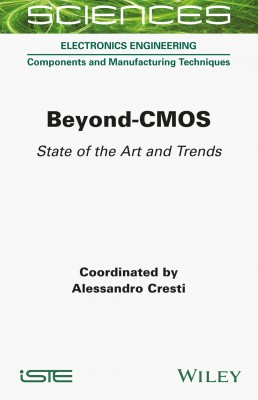
Recent advances in physics, material sciences and technology have allowed the rise of new paradigms with bright prospects for digital electronics, going beyond the reach of Moore’s law, which details the scaling limit of electronic devices in terms of size and power. This book presents original and innovative topics in the field of beyond CMOS electronics, ranging from steep slope devices and molecular electronics to spintronics, valleytronics, superconductivity and optical chips.
Written by globally recognized leading research experts, each chapter of this book will provide an introductory overview of their topic and illustrate the state of the art and future challenges. Aimed not only at students and those new to this field, but also at well-experienced researchers, Beyond-CMOS provides extremely clear and exciting perspectives about the technology of tomorrow, and is thus an effective tool for understanding and developing new ideas, materials and architectures.
1. Tunnel Field-Effect Transistors Based on III–V Semiconductors, Marco Pala.
2. Field-Effect Transistors Based on 2D Materials: A Modeling Perspective, Mathieu Luisier, Cedric Klinkert, Sara Fiore, Jonathan Backman, Youseung Lee, Christian Stieger and Aron Szabo.
3. Negative Capacitance Field-Effect Transistors, Wei Cao and Kaustav Banerjee.
4. Z2 Field-Effect Transistors, Joris Lacord.
5. Two-Dimensional Spintronics, Matthieu Jamet, Diogo C. Vaz, Juan F. Sierra, Josef Svetlik, Sergio O. Valenzuela, Bruno Dlubak, Pierre Seneor, Frédéric Bonell and Thomas Guillet.
6. Valleytronics in 2D Materials, Steven A. Vitale.
7. Molecular Electronics: Electron, Spin and Thermal Transport through Molecules, Dominique Vuillaume.
8. Superconducting Quantum Electronics, Sasan Razmkhah and Pascal Febvre.
9. All-Optical Chips, Frank Bruckerhoff-Pluckel, Johannes Feldmann and Wolfram Pernice.
Alessandro Cresti received his doctorate in physics at the University of Pisa, Italy, in 2006. Since 2011 he has been a researcher at CNRS, France. He has developed full-quantum tools for simulating transport in nanostructures, with particular focus on both basic and applied aspects of 2D materials.